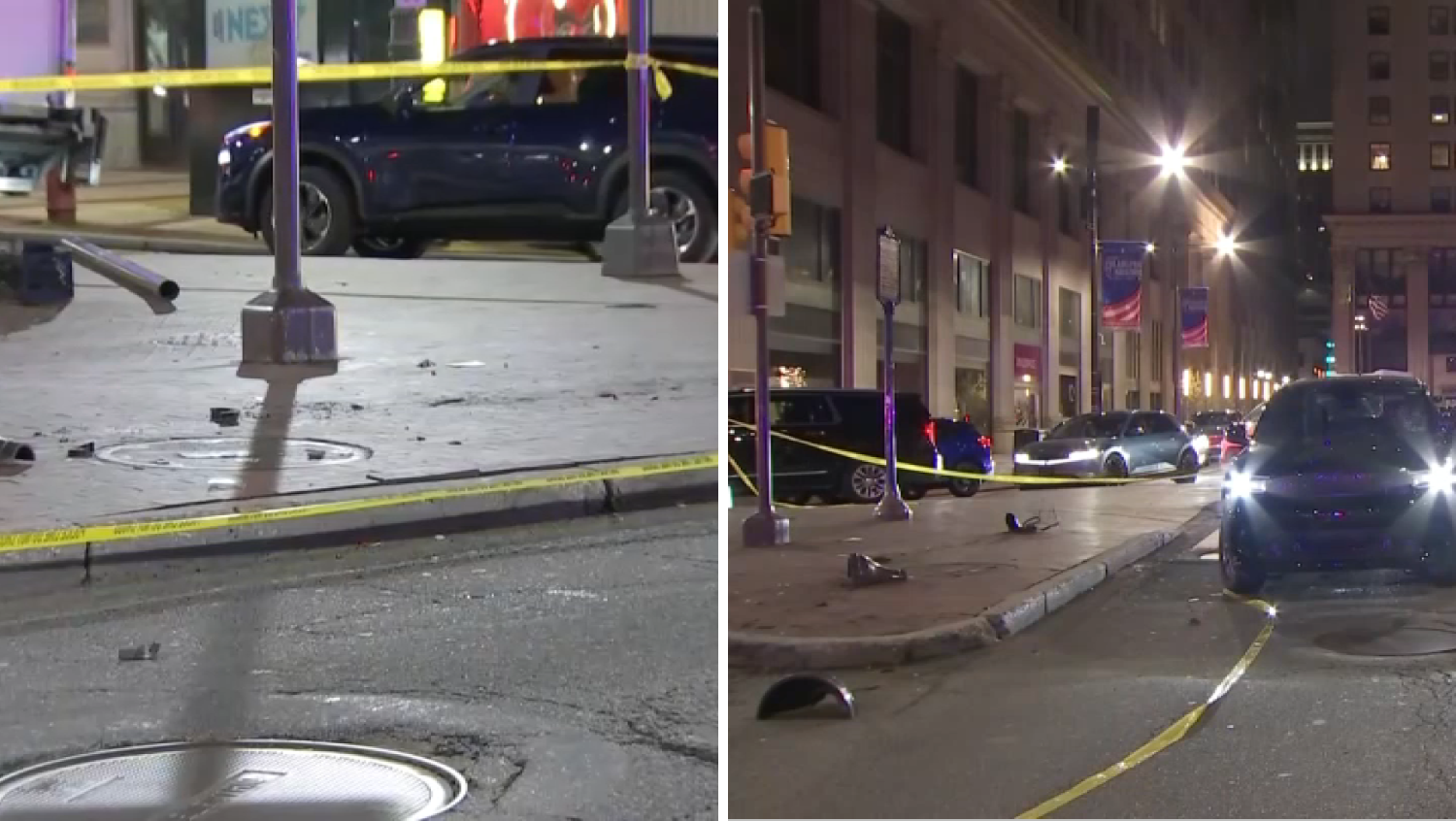WHAT TO KNOW
- A proposed state Senate bill would outlaw police chokeholds and “positional asphyxia,” which some departments already ban
- Another state Senate bill would prohibit police forces from acquiring certain military equipment like weaponized vehicles or grenades
- Another state bill would require a statewide database of police misconduct.
A Pennsylvania state Senator’s proposed bills would outlaw police chokeholds and other restraints that could lead to asphyxiation, meaning that officers who violate that standard could face charges.
Sen. Sharif Street and other legislators met at City Hall Thursday to discuss a slate of police reform bills following multiple violent deaths at the hands of law enforcement that sparked nationwide protests.
“We are here because the public has demanded that we reimagine criminal justice,” Street said.
The chokehold bill was first announced in a memo June 5 but discussed more Thursday. The memo mentions the deaths of George Floyd - who died in Minneapolis police custody last month when an officer knelt on his neck for more than eight minutes - and Eric Garner, whose words “I can’t breathe” in a police chokehold became a rallying cry at nationwide protests.
“As we all saw clearly in the case of Mr. Floyd, Mr. Garner, and others, chokeholds are not a safe or appropriate tool for law enforcement in the course of their daily duties,” Street, a Democrat, wrote in the bill memo.
Attorney General Josh Shapiro, who was also at the press conference, said agents in his office are trained not to use chokeholds, but that it’s not standard guidance across police departments in the state.
Local
Breaking news and the stories that matter to your neighborhood.
“Chokeholds are too dangerous to use as a restraint in Pennsylvania. Chokeholds can kill people.”
The bill also outlaws "positional asphyxia," where someone is restrained in a way that can cut off their breathing and kill them if left in the position too long.
Some departments, including Philadelphia, already ban chokeholds, and accredited police departments are not allowed to use them. But only about 10% of police departments in the state are accredited.
The issues is up for debate in Washington, too. U.S. Sen. Bob Casey, who appeared by video, was critical of a Senate Republican bill that would use funding cuts to punish departments that don’t stop using chokeholds.
“I’m glad they have a bill, but this bill will not cut it,” the Democrat said. “This bill does not really ban chokeholds. Just to say you’re creating incentives by way of withholding the funding is not good enough.”
Democrats in the U.S. Senate are working on their own policing bill that would include a chokehold ban among several other reforms.
In an interview with an NBC News crew in Washington, Sen. Pat Toomey said he didn’t want to take sweeping action with the police reform bill.
“Police officers get injured and killed in the course of their work. And we’ve got to be careful telling them what they can and can’t do in the course of protecting themselves,” the Republican said. “We need to be really really tough on bad cops, but we should be careful about how prescriptive we are for police forces all across the country.”
And in Delaware, a committee in the state House of Representatives will meet Monday to discuss a proposed bill that would make aggravated strangulation from a chokehold a Class D felony. If the hold causes serious bodily injury or kills someone, that would be upgraded to a Class C felony.
Misconduct data
Another state bill would create a confidential database on which police officers have used excessive force or have misconduct complaints.
“No community should have to worry about an officer’s record,” Shapiro said. “And assuring the public that officers with a pattern of misconduct are not serving in their neighborhoods will make Pennsylvanians feel and be safer.”
The database would be private - for law enforcement and other officials only - and used in the hiring process, the politicians said.
It’s a slightly different approach than in New Jersey, where Attorney General Gurbir Grewal ordered all departments to publicly release an annual list of officers fired, demoted or suspended more than five days. And the State Police will release trooper’s major disciplinary records from the past 20 years, Grewal said.
Demilitarization bill
Another Street bill would ban the police purchase of some armored and militarized vehicles; firearms and ammo of .50 Caliber or higher; grenades and grenade launchers; armored or weaponized drones; silencers, bayonets and camo uniforms.
Other military equipment not on the banned list could only be paid for with state or local funds, and governing bodies would have to approve the purchases.
“Law enforcement should protect and serve the communities in which they operate, not occupy neighborhoods and conduct police business as if they were in war zones,” Street wrote in the memo.
NBC10 reported in 2014 that some suburban townships and Philadelphia police had acquired military equipment including armored vehicles and automatic weapons.



